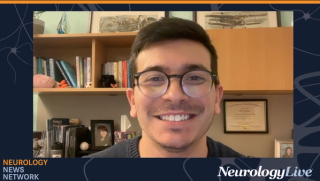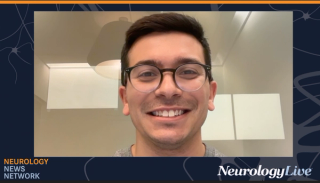
Neuromuscular
Latest News

Breaking Barriers in Stroke Care: Insights From SEQUINS Hall of Famer Lewis B. Morgenstern, MD

Honoring 2025 SEQUINS Hall of Famers: Perspectives From Cheryl Bushnell, MD, MHS
Latest Videos

CME Content
More News
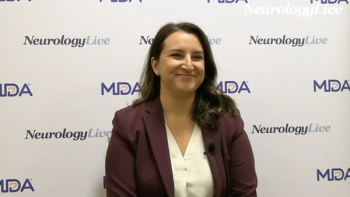
The chief scientific officer at Precision Biosciences provided clinical insights on the durable potential of ARCUS gene editing and the company’s next steps toward in-human trials for Duchenne muscular dystrophy. [WATCH TIME: 4 minutes]
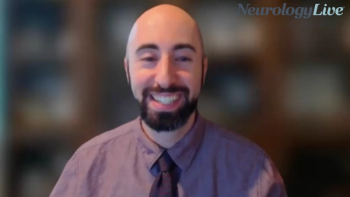
The neuromuscular neurologist at Nemours Children's Hospital in Florida talked about the increasing role of genomic medicine in neuromuscular disorders. [WATCH TIME: 4 minutes]

The chief scientific officer at Precision Biosciences provided clinical commentary on ARCUS gene editing platform and its potential application in Duchenne muscular dystrophy through a durable, AAV-delivered therapeutic strategy. [WATCH TIME: 4 minutes]

Results from the open-label extension of a phase 3 trial showed that treatment with ravulizumab sustained clinical benefits for up to 4 years in patients with generalized myasthenia gravis.

Matthew Wicklund, MD, a professor of neurology at the University of Texas Health Science Center San Antonio, offered a clinical and translational overview of OPMD, highlighting current care challenges and the early promise of dual-action gene therapy strategies.

Here's some of what is coming soon to NeurologyLive® this week.

Backed by promising early data and mechanistic insights, SNUG01 enters clinical trials as the first TRIM72-based gene therapy candidate for ALS.

Neuromuscular expert Matthew Alexander, PhD, explores the evolving landscape of targeted therapies in muscular dystrophies, from fibrosis and glycosylation to combination strategies with gene therapy.
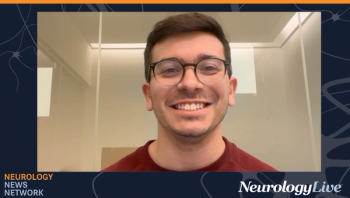
Neurology News Network. for the week ending April 19, 2025. [WATCH TIME: 3 minutes]

Take 5 minutes to catch up on NeurologyLive®'s highlights from the week ending April 18, 2025.
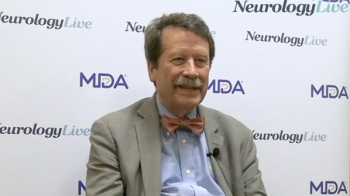
The former FDA commissioner discussed the collaborative power of the neuromuscular community and the challenges of implementing emerging therapies in a rapidly evolving care landscape. [WATCH TIME: 4 minutes]

The chief scientific officer at Avidity Biosciences details the mechanism, early results, and future plans for Del-zota, an investigational therapy targeting exon 44 in Duchenne muscular dystrophy.

Using discovery and validation cohorts, plasma miRNA-214 levels were shown to correlate with disease severity and were also associated with plasma neurofilament light and CSF inflammatory cytokines.

Beth Stein, MD, director of neuromuscular diseases at St. Joseph’s Health, shared insights on the impact of a newly approved pre-filled syringe formulation of efgartigimod, highlighting its potential to transform care delivery.
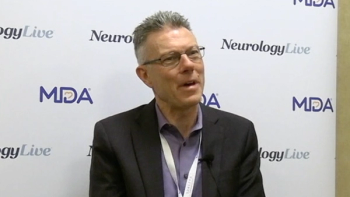
The chief scientific officer at Satellos Bioscience discussed phase 1 findings on SAT-3247, an oral AAK1 inhibitor, highlighting its safety, pharmacokinetics, and early translatability in Duchenne muscular dystrophy. [WATCH TIME: 7 minutes]

In a late-stage trial, telitacicept demonstrated significant and rapid clinical improvements in gMG, achieving notable symptom reductions, improved quality of life, and strong safety outcomes.
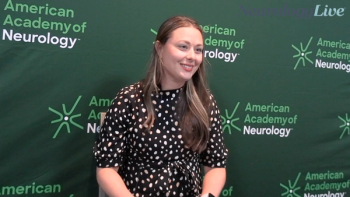
The senior director of mission programs at The ALS Association discussed how the thinkALS Toolkit can aid general neurologists in identifying and referring suspected cases more efficiently. [WATCH TIME: 5 minutes]

Here's some of what is coming soon to NeurologyLive® this week.

Patients treated with efgartigimod for myasthenia gravis were found to have a higher incidence and severity of infections compared to those treated with immunoglobulins.

The phase 1 LUMINA trial evaluates Amylyx Pharmaceuticals' AMX0114, an antisense oligonucleotide targeting calpain-2, as a potential therapy for ALS by focusing on safety, tolerability, and biomarkers tied to disease progression.
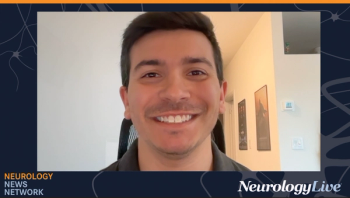
Neurology News Network. for the week ending April 12, 2025. [WATCH TIME: 3 minutes]

Phase 2b trial results showed Descartes-08, a CAR-T therapy, achieved sustained efficacy and a strong safety profile in myasthenia gravis, with notable responses in biologic-naïve patients and no major safety concerns over 12 months.

Cleveland Clinic’s $1.1 billion Neurological Institute, opening in 2027, will revolutionize neurological care with a state-of-the-art, patient-centered design integrating advanced technology and innovative care solutions.

The prefilled syringe is approved for a 20- to 30-second subcutaneous injection, and patients can self-inject following proper instruction in the subcutaneous injection technique.

Catch up on any of the neurology news headlines you may have missed over the course of March 2025, compiled all into one place by the NeurologyLive® team.





